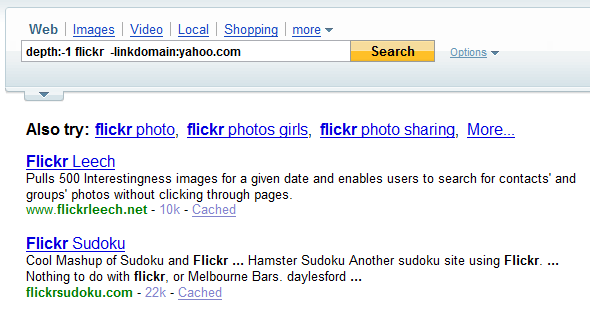Yahoo's strategy to increase the search market share is to add features that can't be found at Google or somewhere else. The problem is that these features need to be distinctive and useful enough to attract the attention and make people switch to Yahoo or at least use it a secondary search engine.
The first innovative feature added by Yahoo was
Search Assistant, an integrated pane that combined autocomplete and related searches. Search Assistant was heavily inspired by
Ask.com's left sidebar, but it included a distinctive feature that made it less obtrusive: the pane is only displayed if you stop typing for a couple of seconds or when your typing slows.
Google also tests a query suggestion feature and places
a list of related searches at the top of the page, but Yahoo's implementation is more interesting.

This week, Yahoo started to
add SiteAdvisor's warnings next to search results. "Safety ratings from
McAfee SiteAdvisor are based on automated safety tests of Web sites and are enhanced by feedback from volunteer reviewers". Yahoo only shows warnings next to sites that use browser exploits, offer malicious software or send spam.
Google also shows warnings next to web pages that may install malicious software, but McAfee SiteAdvisor seems to offer a more comprehensive protection and more information about the potential threats (you can also
install a plug-in for IE or Firefox that works with the most popular search engines or manually find
the testing results for a site).

Probably the most impressive new feature in Yahoo Search and the only one that's not yet live is
SearchMonkey (an unfortunate play on
GreaseMonkey), a way for site owners to enrich the snippets with structured information. "Site owners will be able to provide all types of additional information about their site directly to Yahoo! Search. So instead of a simple title, abstract and URL, for the first time users will see rich results that incorporate the massive amount of data buried in websites -- ratings and reviews, images, deep links, and all kinds of other useful data -- directly on the Yahoo! Search results page."
Yahoo uses
semantic web standards to retrieve structured information from web sites, but users are the ones who decide if they want richer search results from a site. Yahoo will support a small number of
microformats (hCard, hCalendar, hReview, hAtom, XFN), "some of the vocabulary of Dublin Core, Creative Commons, FOAF, GeoRSS, and MediaRSS, as well as RDFa, eRDF, and the OpenSearch specification".
Google chose a different approach -
plus boxes that show additional information automatically detected: addresses, stock symbols, products etc. Google also lets you
add subscribed links to search results pages, but
very few sites took advantage of this feature.

If Yahoo manages to promote these features and site owners build interesting applications for SearchMonkey, people might discover that Yahoo has a pretty good search engine and search is not synonymous with Google. Exploring different ways to present search results will lead to a better user experience and to an improvement for all search engines, since the best features are usually copied by all of them. Yahoo Search hopes to become a serious alternative to Google by having a distinctive voice, but the history of Ask.com or Opera shows that being innovative is not the only necessary ingredient for becoming popular.



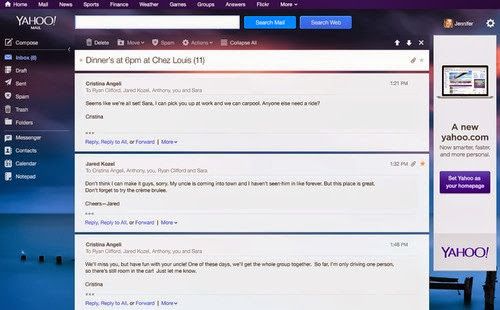
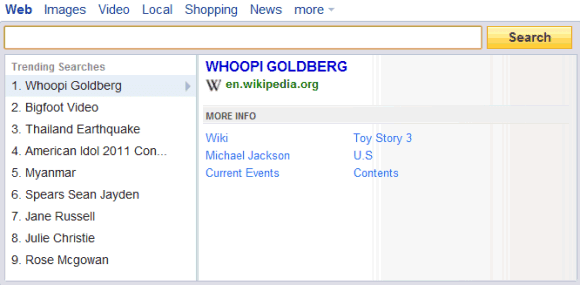
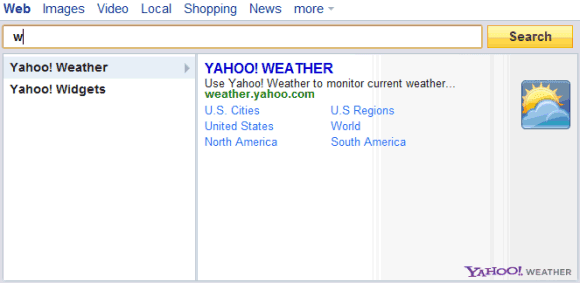
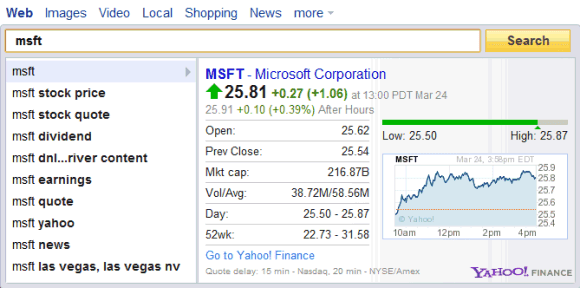
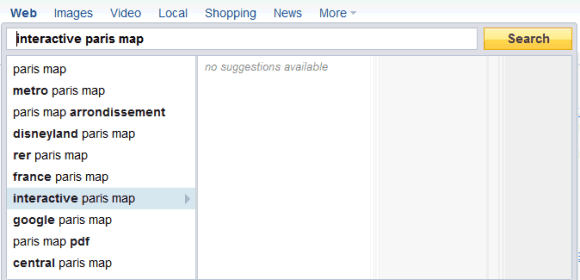






 Yahoo seems to be all about openness lately (
Yahoo seems to be all about openness lately (